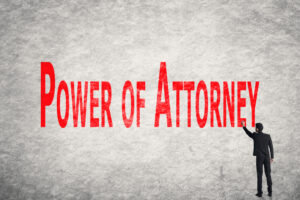A power of attorney document enables what is known as an attorney in fact to do very specific things on behalf of the principal while the principal is alive. A living trust also enables the person appointed to do certain things for the maker of the trust during that person’s lifetime. This appointed party is known as a trustee. However, these powers also extend beyond death.
A power of attorney is like a living trust, in that both allow another person to manage someone else’s assets. A trustee, much like an attorney in fact agent, can manage another person’s assets like doing investments, banking transactions, and many other actions. However, the trustee only has control over those assets that are titled in the name of the living trust. There could be a potential conflict between someone’s actions as an attorney in fact and a trustee’s actions.
This typically comes up if the principle of your power of attorney also has a trust and the powers for both of you overlap. Your attorney may have to prepare a document notifying the trustee about the power of attorney. For example, maybe the home of the principal is owned by a trust, but you have been empowered by a power of attorney to sell that home.
This can create a conflict and potential problems which can be easily avoided. If you would like to learn more about establishing a living trust or a power of attorney document, set aside time to meet with an experienced and knowledgeable estate planning lawyer.



















